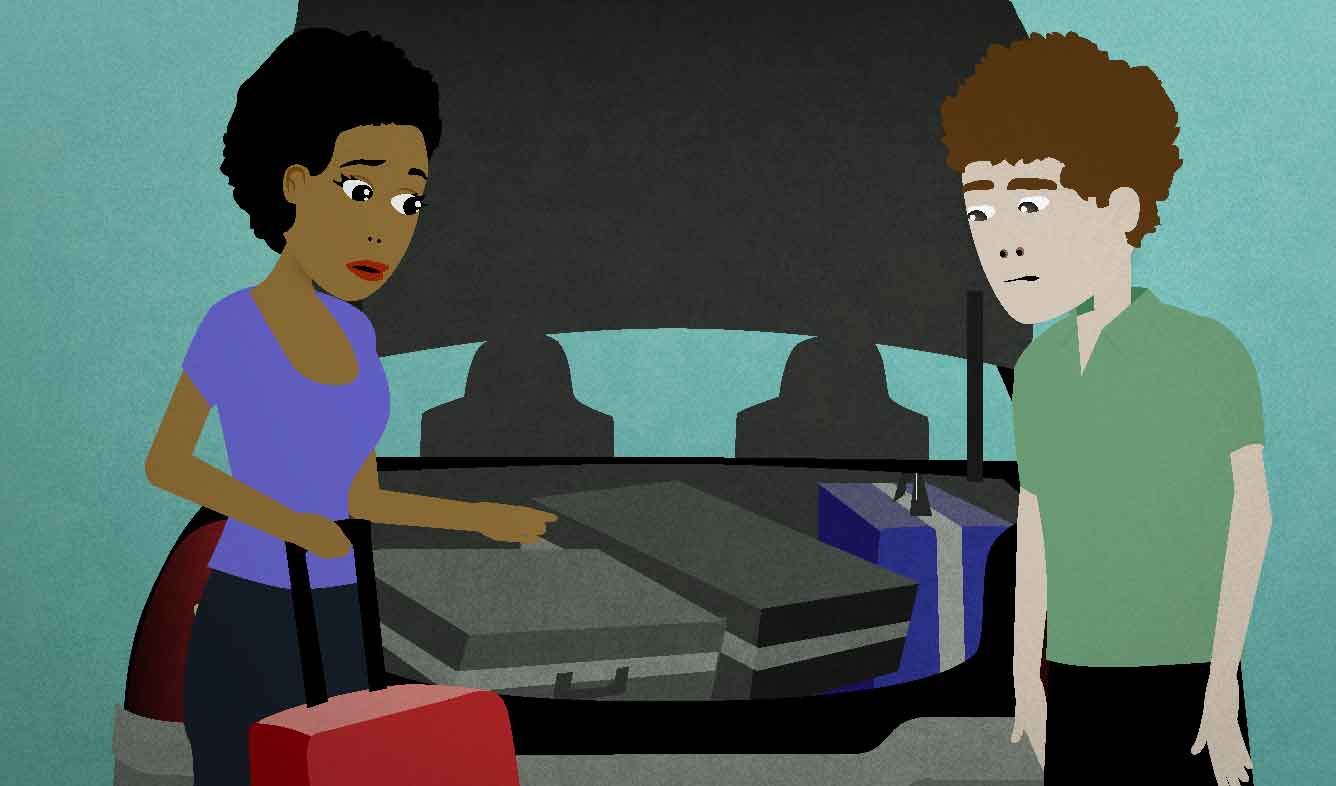“Maybe if we rearrange some of this stuff...?”
You're going on a trip with a group of friends. You're all riding in your friend's car. He's trying to put all the suitcases in the trunk, but yours isn't fitting. You make this suggestion because you think it might be possible to get them all in if they're all packed in the right way.
Maybe if we rearrange some of this stuff...?
Want Video and Sound? Follow us on YouTube

Maybe if (someone) (does something)?
When you're looking for solutions to a problem, you can introduce different ideas that you have with "Maybe if...". For example, if someone is looking for a way to sell her old computer, you can suggest:
Well, maybe if you put it on Craigslist, someone might buy it.
Usually "if" sentences include the conclusion, but if the speaker and the listeners all know what the conclusion is, you can leave it off. So in this example:
Maybe if we rearrange some of this stuff...?
...actually means this:
Maybe if we rearrange some of this stuff, we can fit all of the suitcases in the trunk.
But because everyone knows the conclusion, you don't need to say it.
rearrange (something)
To "rearrange" things means to change their order or position:
Did you rearrange the furniture in here?
I rearranged my schedule so that I could sleep in until 9:00 every morning.
You can also use the specific words "reorder" and "reposition" but "rearrange" can replace both of those.
stuff
"Stuff" can mean almost any physical items or material.
It's similar to the word "things", but "things" are countable and "stuff" is not. So "stuff" is better to use when you're talking about a group of things that are different from each other - different sizes, shapes, etc.
"Stuff" is especially used to refer to things that you buy or own:
There's a good chance that you'll end up buying a lot of stuff while you're there.
Excuse me. Would you mind watching over my stuff for me for just a minute?
But "stuff" can also mean "topics" or "ideas", like in this example:
We have a lot of stuff to talk about.
